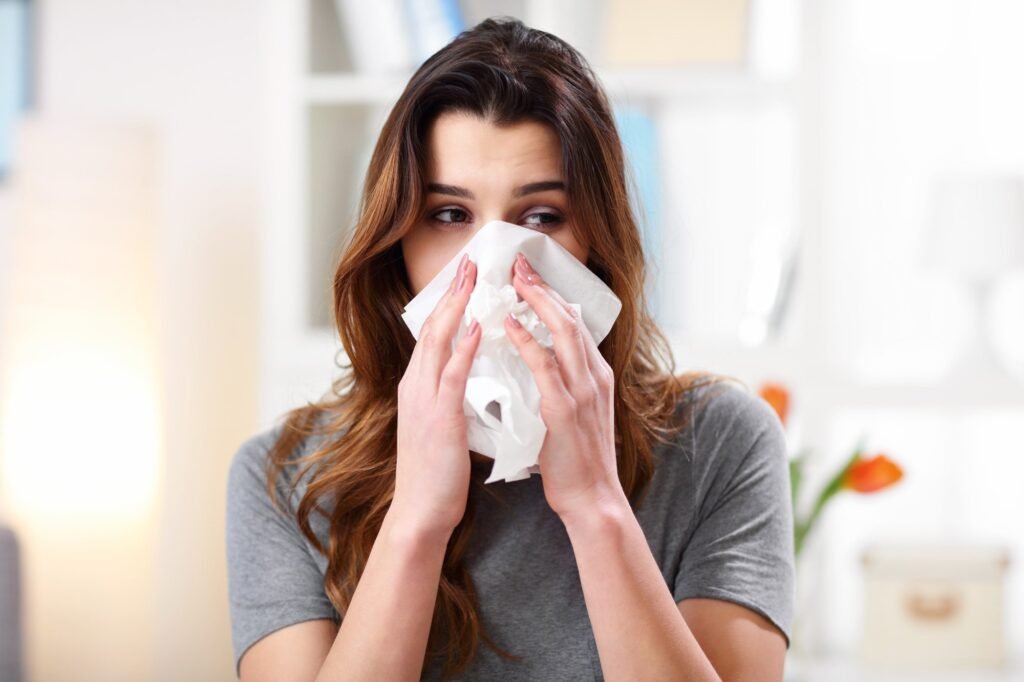Are you having seasonal allergies?
When you are living with allergies, you are affected by symptoms such as runny nose, itchy and watery eyes, sneezing, and even congestion. But you may wonder how to treat allergic rhinitis best.
The good news is that you can keep allergic reactions manageable by taking some simple steps. Keep reading to discover how to make an allergic rhinitis self-care routine to help you get through the day.
Acupuncture
Acupuncture is an ancient form of Chinese Medicine that focuses on stimulating acupoints to relieve pain and other ailments. In the case of allergic rhinitis, acupuncture can help treat inflammation and congestion while improving nasal passage airflow.
The acupoints used in acupuncture help regulate the immune system, reduce watery eyes and sneezing, and clear the sinus passages. To try this procedure, check acupuncture for allergies at dr-surya.com.
Keep Windows Closed
This ensures that fewer allergens, such as pollens, are present in the air that makes its way inside. Doing this may be especially helpful during peak pollen season when it is forecasted as high.
Blocking windows and placing barriers around mattresses and pillows can help keep dust mites at bay. You may apply this self-care routine to other potential allergens, such as dust, to reduce exposure and symptoms further.
Regular Cleaning
Regular cleaning is an integral part of an allergic rhinitis self-care routine. Dust, pet dander, smoke, and other allergens can accumulate in the home and cause allergy symptoms to flare up.
Regular vacuuming and dusting can reduce these indoor allergens. It is also important to keep surfaces wiped down and clean. Vacuuming with a HEPA filter can also help reduce allergen levels in the home.
Saline Nasal Irrigation
Saline nasal irrigation adds salt to a sterile water solution to create a saline rinse. Rinsing with the solution helps to reduce sinus pressure and inflammation and clear mucus from the nasal passages.
The process is easy; you can do it at home with over-the-counter drugstore devices or homemade saline solutions. It must follow instructions to ensure you dilute the mixture according to directions.
Hydration
When dehydrated, your mucus membranes and nasal passages dry, hindering good drainage. Keeping well hydrated helps thin out the mucus in your nose and makes it easier to drain.
As part of an allergic rhinitis self-care routine, drinking eight 8-ounce glasses of water daily is an excellent way to keep hydrated. If you don’t like the taste of plain water, try adding slices of cucumber, strawberries, or mint leaves for natural flavors.
Shower at Night
Showering at night is an integral part of this routine. Doing so can help wash away pollen, dust, and pet dander stuck to your skin, clothes, and hair.
To maximize the effects, try to shower within an hour of bedtime. Limit the time in the shower when possible, and use lukewarm water, as hot water can dry out the skin and worsen symptoms.
Knowing This Allergic Rhinitis Self-Care
To help with seasonal allergies, make a daily allergic rhinitis self-care routine. Include acupuncture, nasal irrigation, and drinking water. Improving your well-being and quality of life is important, so create an easy self-care pattern for allergic rhinitis.
Was this article helpful? Check out the rest of the updates from our blog!
